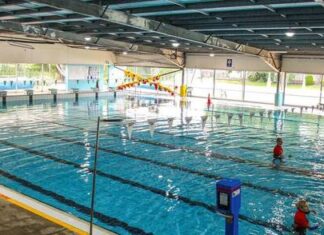Kids Helpline urged everyone on Australia’s first National Day of Action Against Bullying and Violence to encourage children to speak up if they are being bullied.
Kids Helpline general manager Wendy Protheroe said the national counselling service speaks with about 700 young people every day and their data shows bullying is a major concern, in fact it is the second most common reason that children aged five to nine reach out for help.
“Last year, Kids Helpline counsellors engaged in almost 3000 counselling sessions with young people about bullying or assault,” she said.
“That means more than eight times a day, our counsellors spoke with young Australians who were dealing with bullying and the mental, social and emotional impact it has on their lives.
“Feeling scared, powerless, ashamed and other emotions result from being bullied, particularly when occurring over a long period, and these feelings can have long-lasting effects on children including reduced self-confidence and self-esteem, lower school grades and attendance, and difficulties in family and peer relationships.”
At the most extreme, bullying can also cause feelings of hopelessness and lead to young people engaging in deliberate self-injury and thoughts of suicide.
Recent Kids Helpline research into cyberbullying indicates more than half the children experiencing that type of harassment don’t tell an adult they are being bullied.
“It’s frightening to think that a young person will often experience lots of pain and may even hurt themselves before sharing their problems with their mum or dad,” Ms Protheroe said.
“Children need to know bullying isn’t their fault and feel that adults will help them find practical solutions to the problem.”
Ways that you can help a child who is being bullied include: take lots of time to hear, listen and understand; work with the child or young person to develop options, solutions or ways to respond to the bully; try to buffer the impact of bullying by increasing other positive experiences and enlist the assistance of others;.
Notify the school of the bullying behaviour, find out what the school’s anti-bullying policies are and what options are available to you. If you’re not happy with the actions of the school, make this clear to relevant local education authorities.
“As a community and a nation we need to say ‘no to bullying’ and teach our young people that speaking up about bullying will help make it stop,” Ms Protheroe said.
Kids Helpline, Australia’s only national children’s counselling service, provides telephone
and online counselling services to young people aged five to
25 years – free call 1800 55 1800 or online at www.kidshelp.com.au
Download Kids Helpline Bullying Infosheet at www.kidshelp.com.au/upload/22846.pdf
Speak up about bullies
Digital Edition
Subscribe
Get an all ACCESS PASS to the News and your Digital Edition with an online subscription
Two-month closure scheduled for Warwick pool revamp
Warwick’s aquatic facilities are getting a brand new look in the coming months, with the Southern Downs regional council scheduling upgrades for the centre...







